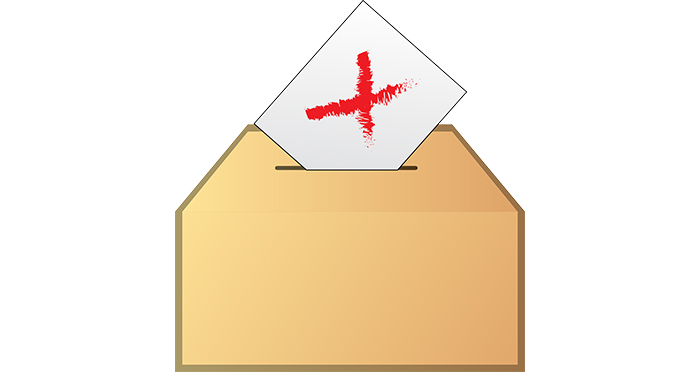NFIB members register their opinion on Jan. 23, 2018 ballot measure
Members of Oregon’s largest and leading small-business association want the health-care taxes adopted last year by the state legislature repealed, according to results from a survey of Oregon members of the National Federation of Independent Business.
When asked if voters should uphold the Oregon Legislature’s plan to finance the 2017-2019 Oregon Health Plan budget by imposing a 1.5 percent tax on commercial insurance premiums and a 0.7 percent tax on the revenues of certain hospitals, 90 percent of survey respondents voted ‘No.’ Just 4 percent voted ‘Yes’ and 6 percent were still undecided.
Measure 101 will be the only item on the January 23, 2018 ballot. The measure is a referendum, which asks voters to uphold or reject previously passed legislation that became law. A ‘no’ vote would stop specified sections of the law from taking effect. A ‘yes’ vote upholds the law in its entirety. Based on the overwhelming results of its small-business member survey, NFIB provided an argument in opposition to the measure that voters will find in the official Voter’s Pamphlet for the Jan. 23 special election.
“Tax increases and rising health-care costs are consistently two of the top concerns for Oregon small-business owners,” said Anthony Smith, NFIB’s Oregon state director. “Small businesses make up 99 percent of all Oregon companies and employ more than half the state’s private-sector workforce. Most small businesses want to offer competitive compensation packages to their employees to attract and retain a productive workforce, including health-care benefits. However, if these taxes are allowed to take effect, it will become even harder, and possibly even cost-prohibitive, for Oregon’s small, family businesses to continue offering affordable health-care coverage to their employees.”
In a letter sent to Oregon legislators last year opposing passage of House Bill 2391, which created the new health-care taxes, Smith wrote, “For those employers who are required by law to offer health care plans to their employees, the tax is arguably even more objectionable … While very large businesses might be able to self-insure, the small- to mid-sized businesses will be stuck with higher health care costs. Self-insured plans would not be subject to the 1.5 percent premium tax, giving yet another competitive advantage to big businesses over their home-grown, smaller competitors.”
According to opponents of the measure, in addition to small business being hurt by the additional taxes, school districts, public employees and even college students’ health-care premiums would be adversely affected by the new taxes, which are specifically permitted to be passed on to health-care customers by the insurance companies.
Celebrating its 75th anniversary, the National Federation of Independent Business has taken the message from Main Street to the halls of Congress and all 50 state legislatures since 1943. NFIB annually surveys its members on state and federal issues vital to their survival as America’s economic engine and biggest creator of jobs. NFIB’s educational mission is to remind policymakers that small businesses are not smaller versions of bigger businesses; they have very different challenges and priorities.
National Federation of Independent Business/Oregon
3340 Commercial St. S.E. Suite 210
Salem, OR 97302
503-364-4450
www.nfib.com/oregon
Twitter NFIB_OR




